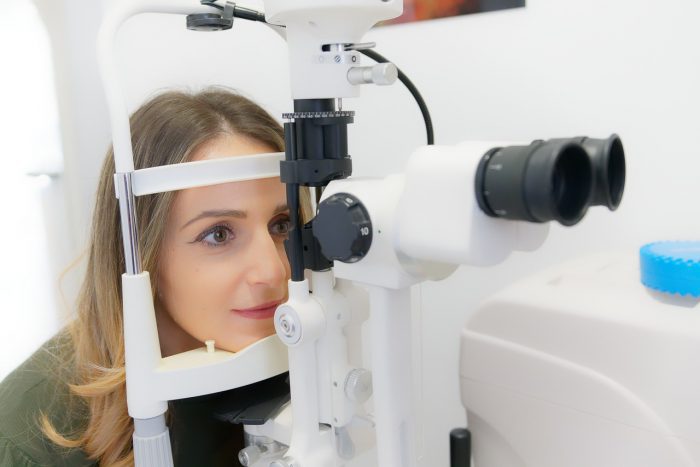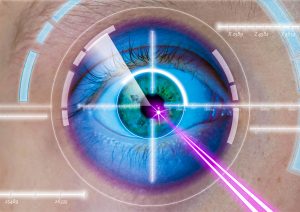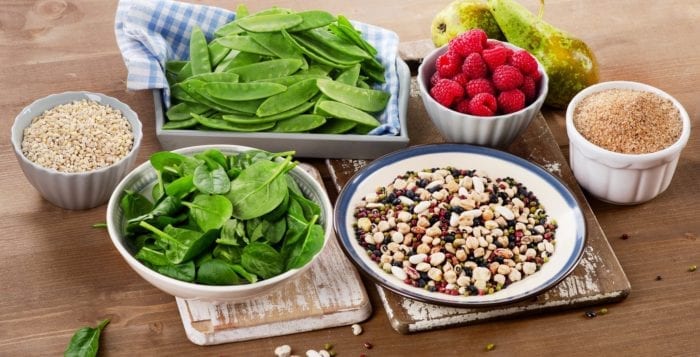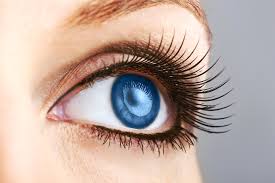Supplements may not have the same benefits
By David Dunaief, M.D.

A cataract is an opacity or cloudiness of the eye’s lens, which decreases vision as it progresses. Although there are different types of cataracts, most often it’s caused by oxidative stress. As we age, the likelihood increases that cataracts will affect our vision.
In the U.S., estimates suggest that 26.6 million Americans over age 40 have a cataract in at least one eye or have had surgery to remove a cataract (1). By age 80, this increases to approximately 50 percent of Americans.
Chronic diseases, such as diabetes and metabolic syndrome; steroid use; and physical inactivity can contribute to your risk.
The good news is that we can take an active role in preventing cataracts. Protecting your eyes from the sun and injuries, quitting smoking, and increasing your consumption of fruits and vegetables can improve your odds. Here, we will focus on the dietary factor.
What effect does meat consumption have on cataracts?
Diet has been shown to have substantial effect on cataract risk (2). One of the most expansive studies on cataract formation and diet was the Oxford (UK) group, with 27,670 participants, of the European Prospective Investigation into Cancer and Nutrition (EPIC) trial. Participants completed food frequency questionnaires between 1993 and 1999. Then, they were checked for cataracts between 2008 and 2009.
There was an inverse relationship between cataract risk and the amount of meat consumed. In other words, those who ate more meat were at higher risk of cataracts. “Meat” included red meat, fowl and pork.
Compared to high meat eaters, every other group demonstrated a significant reduction in risk as they progressed along a spectrum that included low meat eaters (15 percent reduction), fish eaters (21 percent reduction), vegetarians (30 percent reduction) and finally vegans (40 percent reduction).
There was not much difference in meat consumption between high meat eaters, those having at least 3.5 ounces, and low meat eaters, those having less than 1.7 ounces a day, yet there was a substantial decline in cataracts. This suggests that you can achieve a meaningful effect by reducing or replacing your average meat intake, rather than eliminating meat from your diet.
I’ve had several patients experience cataract reversal after they transitioned to a nutrient-dense, plant-based diet. This positive outcome and was confirmed by their ophthalmologists.
Do antioxidants help prevent cataracts?
Oxidative stress is one of the major contributors to cataract development. In a review article that looked at 70 different trials for the development of cataract and/or maculopathies, such as age-related macular degeneration, the authors concluded antioxidants, which are micronutrients found in foods, play an integral part in eye disease prevention (3).
The authors go on to say that a diet rich in fruits and vegetables, as well as lifestyle modification with cessation of smoking and treatment of obesity at an early age, help to reduce the risk of cataracts. You are never too young or too old to take steps to protect your vision.
Among antioxidant-rich foods studied that have shown positive effects is citrus. The Blue Mountains Eye Study found that participants who had the highest dietary intake of vitamin C reduced their 10-year risk for nuclear cataracts (4). The same effect was not seen with vitamin C supplements. Instead, a high dose of a single-nutrient vitamin C supplement actually increased cataract incidence (5).
How effective is cataract surgery?
The only effective way to correct cataracts is with surgery; the most typical type is phacoemulsification. Ophthalmologists remove the opaque lens and replace it with a synthetic intraocular lens in an outpatient procedure. Fortunately, this surgery has a very high success rate.
Of course, there are always potential risks with invasive procedures, such as infection, even when the chances of complications are low. In a small percentage of cases, surgery complications have resulted in blindness.
You can reduce your risk of cataracts with diet and other lifestyle modifications, plus avoid potential consequences from cataract surgery, all while reducing your risk of other chronic diseases. Why not choose the win-win scenario?
References:
(1) nei.nih.gov. (2) Am J Clin Nutr. 2011 May; 93(5):1128-1135. (3) Exp Eye Res. 2007; 84: 229-245. (4) Am J Clin Nutr. 2008 Jun; 87(6):1899-1305. (5) Nutrients. 2019 May; 11(5): 1186.
Dr. David Dunaief is a speaker, author and local lifestyle medicine physician focusing on the integration of medicine, nutrition, fitness and stress management. For further information, visit www.medicalcompassmd.com or consult your personal physician.





 There was an inverse relationship between the amount of meat consumed and cataract risk. In other words, those who ate a great amount of meat were at higher risk of cataracts. “Meat” included red meat, fowl and pork. These results followed what we call a dose-response curve.
There was an inverse relationship between the amount of meat consumed and cataract risk. In other words, those who ate a great amount of meat were at higher risk of cataracts. “Meat” included red meat, fowl and pork. These results followed what we call a dose-response curve.








